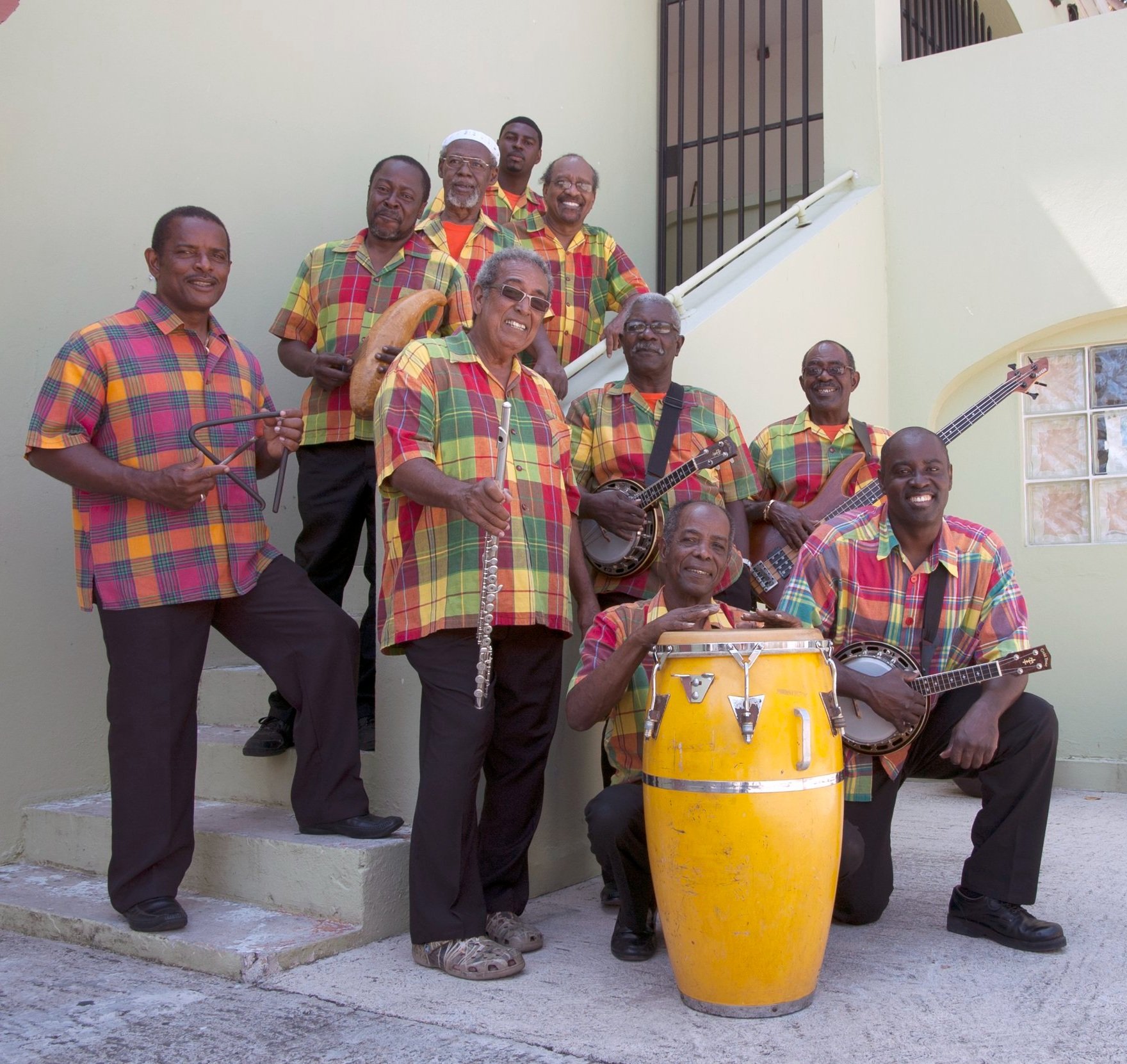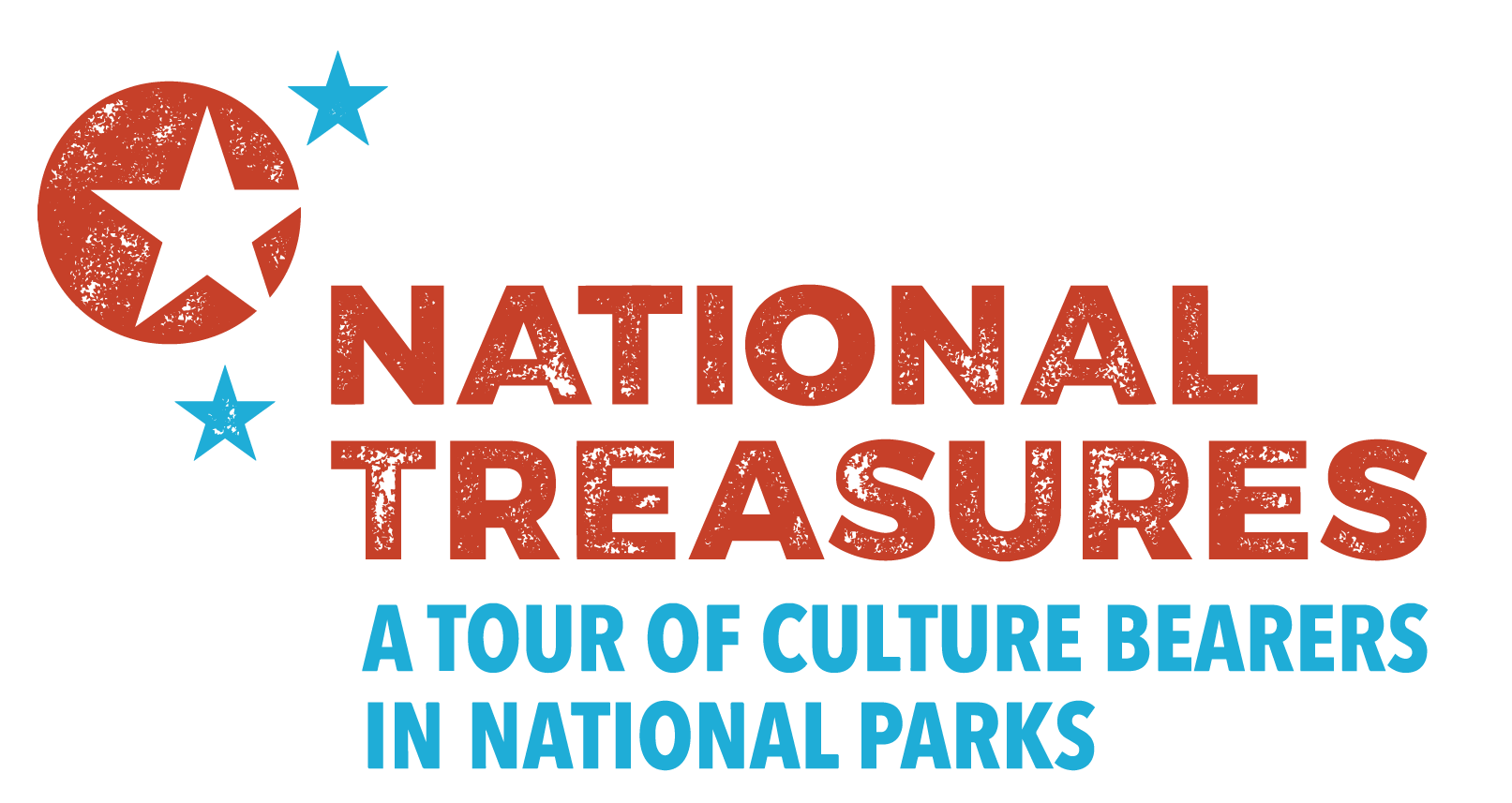quelbe music
St. Croix, U.S. Virgin Islands
Photo: Daniel E. Sheehy
The Caribbean is a global musical powerhouse, where African, European, and Indigenous sounds have danced together for over 500 years, producing an infinite, irresistible variety of creolized rhythms and world-shaking songs. Yet, for every Caribbean genre that has traveled the world, others have stayed stubbornly local, rooted in each island’s unique history and culture. One of the most fascinating of these styles is quelbe music from St. Croix, in the U.S. Virgin Islands, as performed by local legends, Stanley & the Ten Sleepless Knights.
Quelbe (kwell-BEH), sometimes known as “scratch,” is a joyous, percussive homegrown sound. Stigmatized for decades due to its rural roots and seemingly scandalous content, it was declared the official traditional music of the Virgin Islands in 2003. The music is traditionally played on guitar, banjo, and flute, as well as such homemade instruments as “pipe”—a length of car exhaust pipe fashioned into a kind of tuba—a gourd rasp called “squash,” and a large metal triangle called “steel.” Musically, quelbe resembles a not-too-distant cousin of calypso, with its syncopated beat, call-and-response lyrics, and topical, comic social commentary filled with sly double entendres. In fact, quelbe and calypso share a common root in the cariso sound that was popular across the Caribbean in the 18th and 19th centuries. But quelbe also reflects St. Croix’s heritage as a colony of Denmark, where European dance crazes such as the waltz and quadrille mingled with the bamboula and other social dances and music of enslaved Africans to produce this unique hybrid sound.
Stanley & the Ten Sleepless Knights are the leading conservators of quelbe music today. The 10-piece band was launched by a group of friends in 1970, led by flautist Stanley Jacobs. Born in 1941 in Puerto Rico, Jacobs was raised on St. Croix, where he grew up steeped in music. As a child he and his brothers made guitars out of sardine pans. He continued playing music and experimenting with various styles, forming a band called Los Charlatanes as a schoolboy, playing steel pan in college, and performing Bob Dylan and Joan Baez songs during his stint in the U.S. Army in the early ’60s.
While working in a retirement home on St. Croix in 1963, Jacobs picked up the bamboo flute from co-worker and mentor Stanford Simmonds, and learned from elders that the ubiquitous music most people knew as “scratch” had an older, indigenous name: quelbe music. “That’s all we knew,” Stanley recalls. He brought this knowledge to the Ten Sleepless Knights, who modernized the music by adding electric bass in lieu of the pipe, and keyboard. Soon their repertoire of quelbe songs, jigs, waltzes, quadrilles, schottisches, and merengue made them a Crucian favorite, known for such songs as “Cigar Win the Race” and “Pack Me Guts,” as well as their annual Christmas serenades and, since 2022, the Ten Sleepless Knights Folklife Festival. In 2010, the St. Thomas Source marked the group’s 40th anniversary, hailing them as “the premier quelbe band in the world” and a “Virgin Islands treasure.” In 2022, Stanley Jacobs was recognized with a National Endowment for the Arts National Heritage Fellowship, our government’s highest honor in folk and traditional arts.
Stanley Jacobs & the Ten Sleepless Knights’ performances at the Richmond Folk Festival are made possible, in part, with support from National Treasures: A Tour of Culture Bearers in National Parks. A program of the National Council for the Traditional Arts, National Treasures presents NEA National Heritage Fellows at signature National Parks throughout the American landscape. For more information visit: ncta-usa.org/nationaltreasures.


